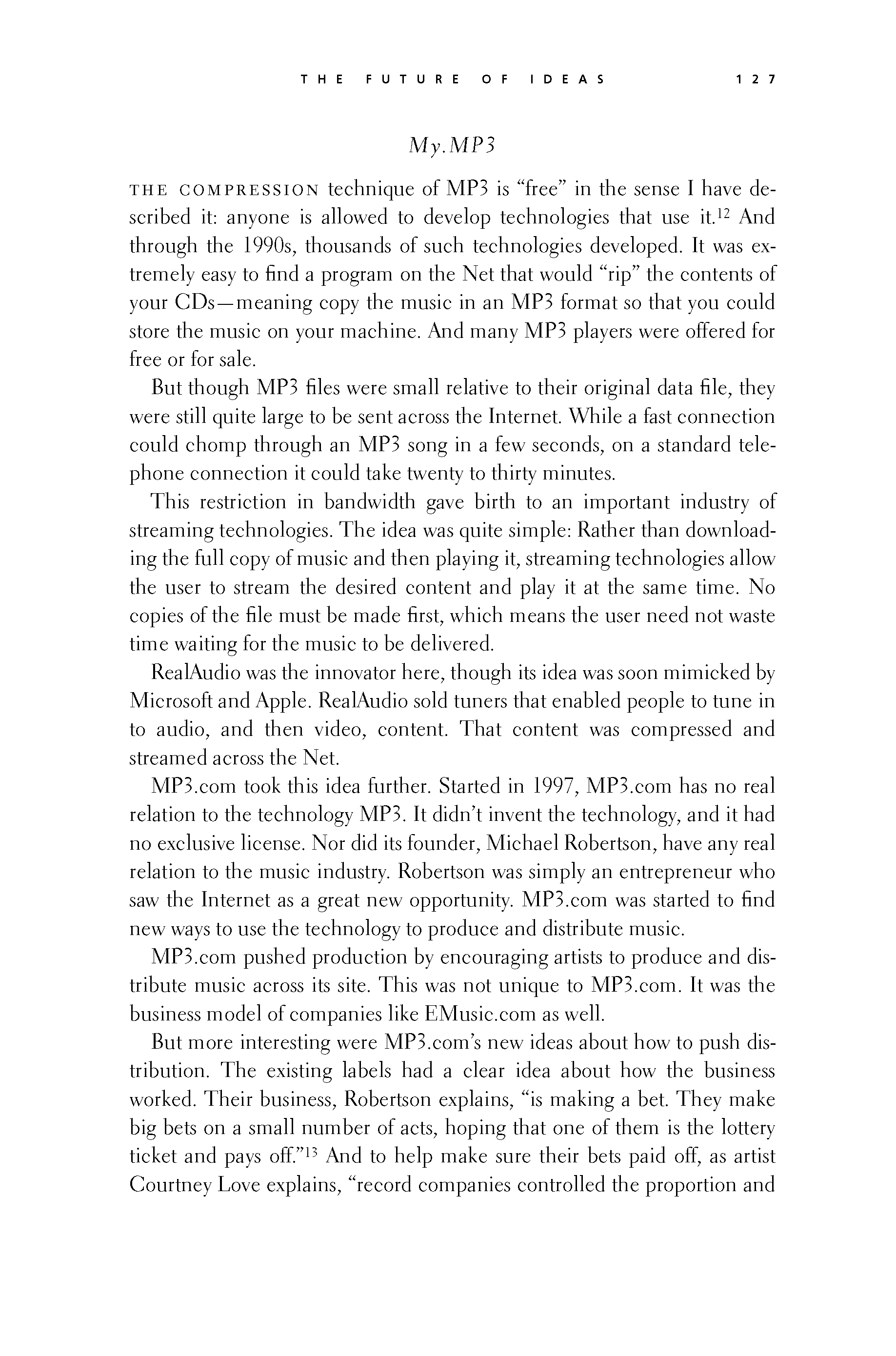 p126 _
-chap- _
toc-1 _
p127w _
toc-2 _
+chap+ _
p128
p126 _
-chap- _
toc-1 _
p127w _
toc-2 _
+chap+ _
p128
/tab\/tab\_My.MP3_/tab\/tab\
The compression technique of MP3 is "free" in the sense I have de-
scribed it: anyone is allowed to develop technologies that use it.[8-12] And
through the 1990s, thousands of such technologies developed. It was ex-
tremely easy to find a program on the Net that would "rip" the contents of
your CDs -- meaning copy the music in an MP3 format so that you could
store the music on your machine. And many MP3 players were offered for
free or for sale.
But though MP3 files were small relative to their original data file, they
were still quite large to be sent across the Internet. While a fast connection
could chomp through an MP3 song in a few seconds, on a standard tele-
phone connection it could take twenty to thirty minutes.
This restriction in bandwidth gave birth to an important industry of
streaming technologies. The idea was quite simple: Rather than download-
ing the full copy of music and then playing it, streaming technologies allow
the user to stream the desired content and play it at the same time. No
copies of the file must be made first, which means the user need not waste
time waiting for the music to be delivered.
RealAudio was the innovator here, though its idea was soon mimicked by
Microsoft and Apple. RealAudio sold tuners that enabled people to tune in
to audio, and then video, content. That content was compressed and
streamed across the Net.
MP3.com took this idea further. Started in 1997, MP3.com has no real
relation to the technology MP3. It didn't invent the technology, and it had
no exclusive license. Nor did its founder, Michael Robertson, have any real
relation to the music industry. Robertson was simply an entrepreneur who
saw the Internet as a great new opportunity. MP3.com was started to find
new ways to use the technology to produce and distribute music.
MP3.com pushed production by encouraging artists to produce and dis-
tribute music across its site. This was not unique to MP3.com. It was the
business model of companies like EMusic.com as well.
But more interesting were MP3.com's new ideas about how to push dis-
tribution. The existing labels had a clear idea about how the business
worked. Their business, Robertson explains, "is making a bet. They make
big bets on a small number of acts, hoping that one of them is the lottery
ticket and pays off."[8-13] And to help make sure their bets paid off, as artist
Courtney Love explains, "record companies controlled the proportion and
[[127]]
p126 _
-chap- _
toc-1 _
p127w _
toc-2 _
+chap+ _
p128